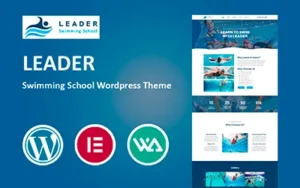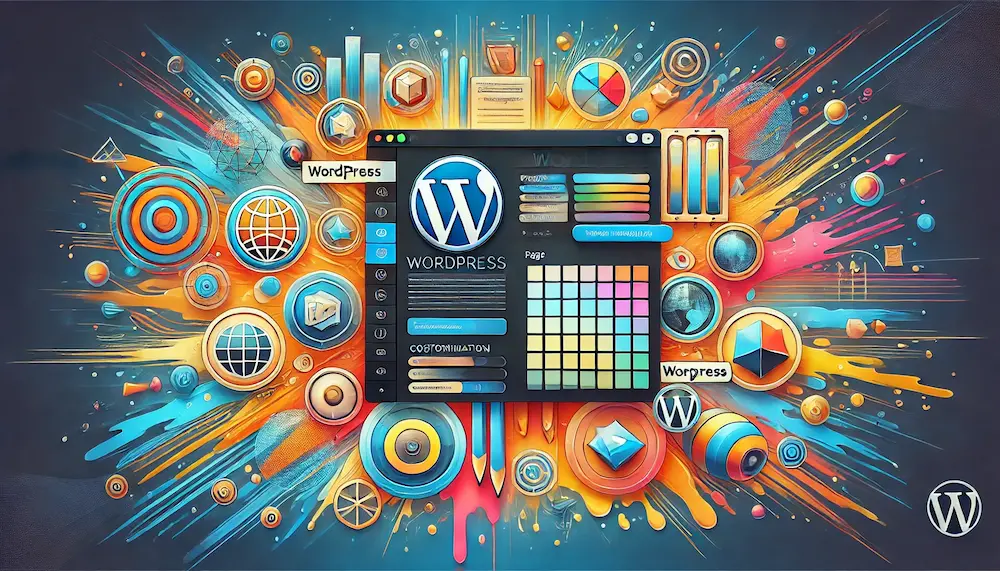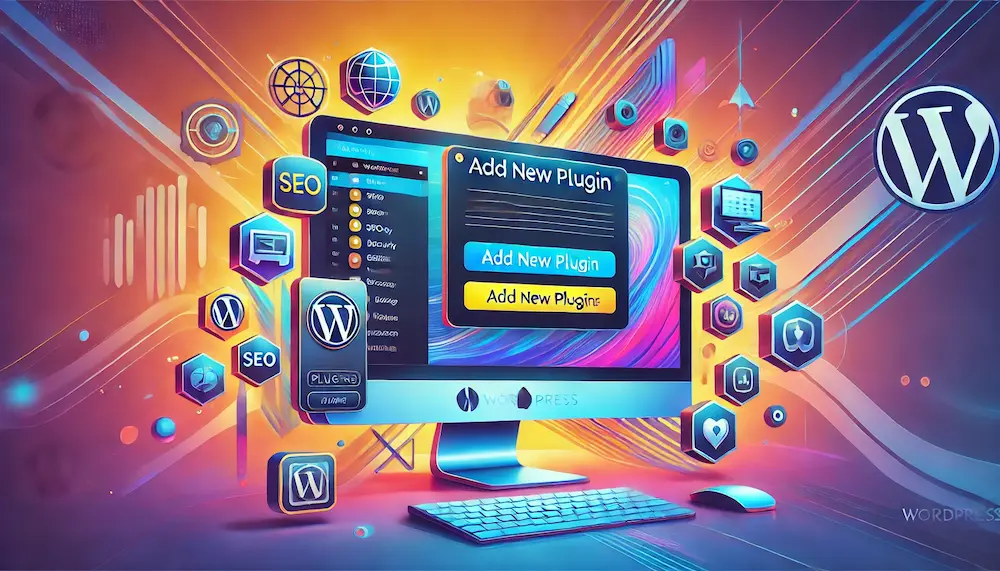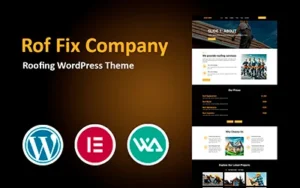What is WordPress? Everything You Need to Know

WordPress is the world’s most popular content management system (CMS), powering over 43% of all websites globally. But what exactly is WordPress, and why has it become the go-to platform for creating websites? This guide will explore the basics of WordPress, themes, templates, and frameworks, as well as compare WordPress to traditional HTML websites. Let’s dive into what makes WordPress a powerful tool for website development.
What is WordPress?
WordPress is an open-source CMS that allows users to build and manage websites without advanced coding skills. Initially launched in 2003 as a blogging platform, it has since evolved into a versatile tool capable of creating blogs, e-commerce stores, portfolios, business websites, and more.
Key Features of WordPress
- Ease of Use: WordPress provides a user-friendly dashboard for managing content, themes, and plugins.
- Customization: Thousands of themes and plugins allow users to personalize their sites.
- SEO-Friendly: Built-in features and plugins like Yoast SEO make it easy to optimize your site for search engines.
- Open Source: The software is free to use and can be modified to suit your needs.
What is a WordPress Theme?
A WordPress theme is a collection of files that determine the design, layout, and functionality of a website. Themes control how your website looks to visitors, including elements like:
- Colors and typography
- Layouts for posts and pages
- Navigation menus and headers
What is a Theme in WordPress?
In WordPress, themes allow users to apply pre-designed templates to their websites, saving time and effort. They are highly customizable, and you can change your theme without affecting your website’s content.
What Are Examples of Themes?
WordPress themes come in a wide variety of styles and functionalities, catering to different industries and purposes. Themes control the visual appearance of your site and provide pre-designed layouts, making it easy to create professional-looking websites without coding.
Where to Find WordPress Themes
- Templates Collector Marketplace: Explore a curated collection of premium and free themes tailored for blogs, businesses, e-commerce, and more.
- WordPress Theme Repository: Access thousands of free themes directly from your WordPress dashboard or by visiting WordPress.org.
Popular Theme Categories
- Business Themes: Professional layouts designed to showcase services and attract clients.
- E-Commerce Themes: Templates with built-in features for online stores, such as product galleries and shopping carts.
- Blogging Themes: Minimalistic and elegant designs for sharing ideas and stories.
- Portfolio Themes: Visual-centric templates ideal for creatives to display their work.
Choosing the Right Theme
When selecting a theme, consider your website’s purpose, design preferences, and desired features. Templates Collector offers both free and premium options to meet the needs of any project, while the WordPress Theme Repository provides reliable, community-reviewed free themes.
Whether you need a dynamic business site or a simple blog, there’s a WordPress theme to help bring your vision to life.
What Are Website Templates?
In WordPress, the terms “themes” and “templates” are often used interchangeably, but they have distinct meanings. Understanding the difference is essential for effectively building and customizing your WordPress site.
What is a Website Template?
A website template is a pre-designed layout for a specific part of a website, such as a page, post, or section. In WordPress, templates are part of a theme and define how certain types of content are displayed.
For example:
- A single post template determines how individual blog posts are styled.
- A page template may offer different layouts for static pages like “About Us” or “Contact.”
- Templates can also control the layout of archives, category pages, and more.
What is the Difference Between Themes and Templates?
- Themes: A theme is the overarching design framework for your site. It includes all the styling elements (colors, fonts, layouts) and functionality (header, footer, widgets).
- Templates: Templates are individual files within a theme that handle specific parts of the site. They focus on how content is displayed on certain pages or sections.
Think of it this way: A theme is the overall look and feel of your website, while templates are the building blocks that make up the structure of specific pages.
Where to Find WordPress Templates?
You don’t need to look far to find high-quality templates. Themes available on the Templates Collector Marketplace include a wide range of templates for pages, posts, and custom content types. You can also explore free and premium options on the WordPress Theme Repository.
How to Use Templates in WordPress
- Built-In Templates: Many themes come with pre-designed templates you can apply immediately. For instance, you might use a “Full-Width Page” template for a landing page.
- Custom Templates: You can create your own templates for unique layouts and styles. This requires some knowledge of PHP and the WordPress template hierarchy.
- Template Plugins: Use page builder plugins like Elementor or Gutenberg blocks to create custom templates without coding.
Templates are essential tools for customizing your WordPress site’s structure and design. By choosing the right combination of themes and templates, you can create a website that’s both functional and visually appealing. Visit the Templates Collector Marketplace to discover a wide variety of themes and templates tailored to your needs.
What is the Difference Between WordPress and HTML?
WordPress and HTML are both used for building websites, but they serve different purposes:
WordPress:
- Dynamic platform with a user-friendly interface.
- Requires no coding knowledge.
- Offers themes and plugins for customization.
HTML:
- Static websites built with manual coding.
- Requires knowledge of HTML, CSS, and JavaScript.
- Time-consuming to update or maintain.
Which is better? WordPress is ideal for most users because it’s easier to use and maintain, while HTML is suitable for highly specific, lightweight projects.
What is WordPress Website Development?
WordPress website development refers to creating and customizing websites using WordPress. It involves:
- Selecting and customizing themes.
- Installing and configuring plugins.
- Optimizing the site for performance and SEO.
WordPress development ranges from basic setup to advanced customization using coding.
What is WordPress Framework?
A WordPress framework is a pre-built code library that provides a foundation for developing custom themes and plugins. Frameworks include reusable components, tools, and a structured codebase, allowing developers to streamline the creation of websites while maintaining consistency and performance.
Frameworks are particularly valuable for building scalable, secure, and high-performing websites. They save time by providing ready-to-use elements and a solid structure for customization.
5 Popular WordPress Frameworks
- Genesis Framework
A lightweight and SEO-friendly framework designed for building fast, secure, and responsive websites. Genesis focuses on providing a solid foundation with built-in SEO tools and the ability to customize via child themes. - Underscores (_s)
A starter theme framework known for its simplicity and clean code. It’s designed for developers who want to create custom themes from scratch while adhering to WordPress best practices. - Sage
A modern WordPress framework that integrates advanced tools like Blade templating and Webpack for efficient asset management. Sage is ideal for experienced developers seeking a modern workflow. - Gantry
A user-friendly framework with a drag-and-drop layout manager, making it easy to customize designs without deep coding knowledge. Gantry is versatile and suited for both beginners and advanced developers. - Cherry Framework
A modular framework that provides pre-built templates and shortcodes for quick website creation. It’s beginner-friendly and ideal for projects that require fast implementation with minimal coding.
Why Use a Framework?
Using a framework helps developers:
- Save time with reusable components.
- Ensure clean, scalable, and maintainable code.
- Focus on customization and design instead of repetitive tasks.
Choosing the right framework depends on your project’s complexity, your coding expertise, and the desired level of customization. Frameworks provide a reliable starting point for WordPress development.
Conclusion
WordPress is a powerful, flexible, and user-friendly CMS that caters to beginners and experienced developers alike. Whether you’re choosing a theme, customizing a template, or exploring frameworks like Genesis, WordPress offers tools to create any type of website.
Ready to start your WordPress journey? Check out our in-depth guides on themes, plugins, and more to unlock the full potential of WordPress!
Latest Posts
Tags
Our WordPress Themes

129,00 € Original price was: 129,00 €.99,00 €Current price is: 99,00 €.

64,00 € Original price was: 64,00 €.49,00 €Current price is: 49,00 €.
Share:






